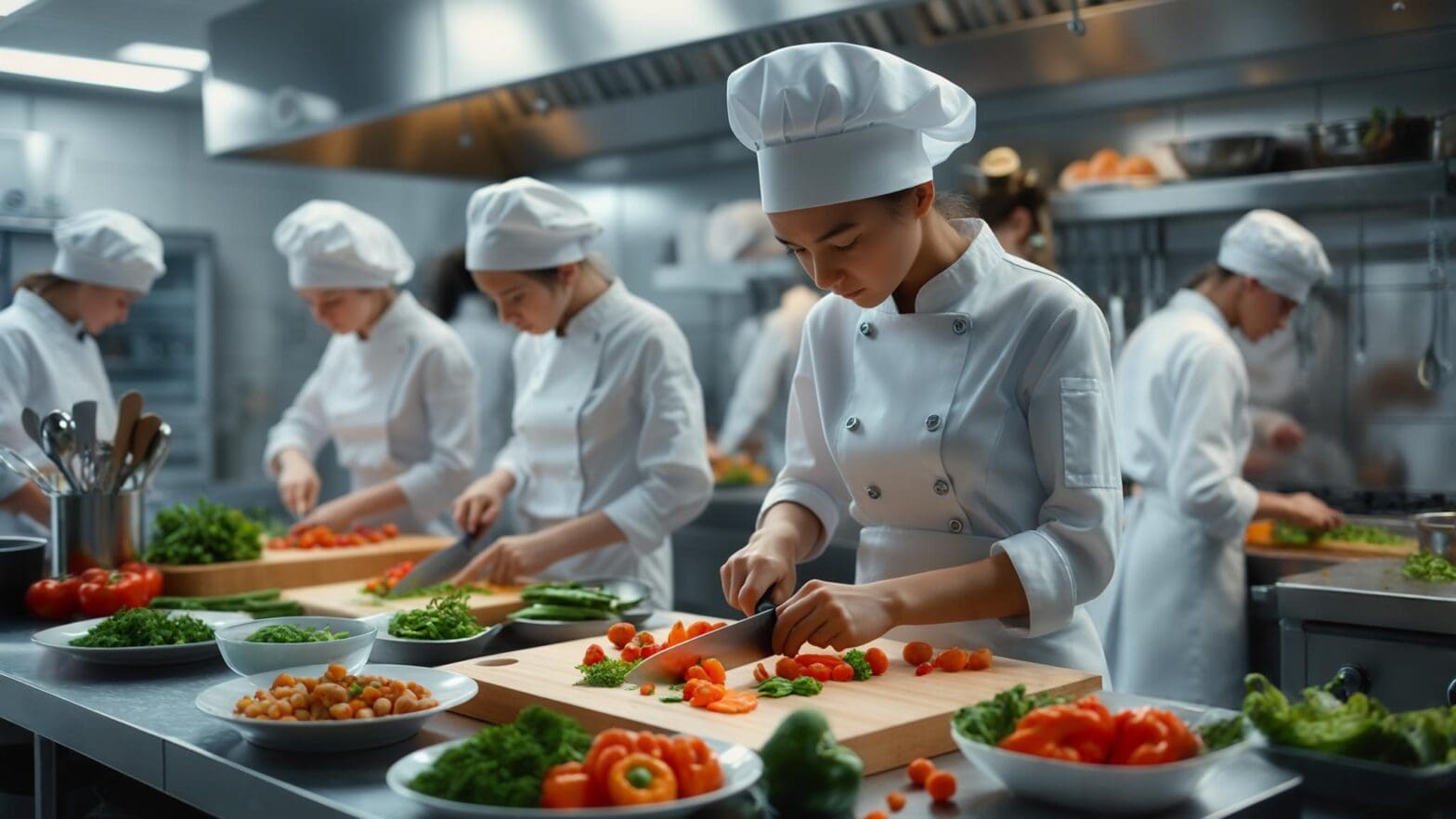Table of Contents
-
The Real Timeline Behind Chef Degree Programs
-
Why Your Kitchen Experience Changes Everything
-
The Network-Building Phase That Extends Your Journey
-
Alternative Routes That Skip Traditional School Entirely
-
When Life Gets in the Way: The Financial Timeline Reality
-
Lost Your Diploma? Here’s What You Need to Know
-
Final Thoughts
TL;DR
-
Look, culinary school marketing is basically a bunch of pretty lies – your real experience can cut months or even years off those fake timelines
-
Competency-based programs let you skip the stuff you already know, potentially turning an 18-month program into 12 months if you’re not starting from zero
-
Graduation is just the starting line – you’ll spend years kissing ass, working for free, and building connections that actually matter
-
Screw traditional degrees – competitions, online courses, and specialized certs can get you further than some overpriced programs
-
Here’s the math nobody wants to do: financial reality often doubles your actual completion time, with many students taking 3+ years for associate degrees
-
Schools go belly-up more than you’d think, taking your diploma with them – but you’re not completely screwed if you plan ahead
The Real Timeline Behind Chef Degree Programs
Look, I’m gonna be straight with you – culinary school marketing is basically a bunch of pretty lies. I’ve seen way too many people get blindsided by the reality of how long this stuff actually takes. The truth is that becoming a chef can take anywhere from a few years to over a decade, according to Auguste Escoffier School of Culinary Arts, depending on factors like education, training, and hands-on experience. This wild range exists because there’s no magic formula that works for everyone – your path is gonna be messier than those shiny brochures suggest.
Here’s the thing nobody tells you upfront about how long does it take to get a chef degree: those neat little timelines in the marketing materials? Total BS. Real life is messier, and honestly, that’s okay. Most programs advertise standard completion times, but they completely ignore the shortcuts that smart students actually take. I’ve watched people shave entire semesters off their programs through competency testing, prior learning assessments, and modular scheduling that nobody bothers to mention during campus tours.
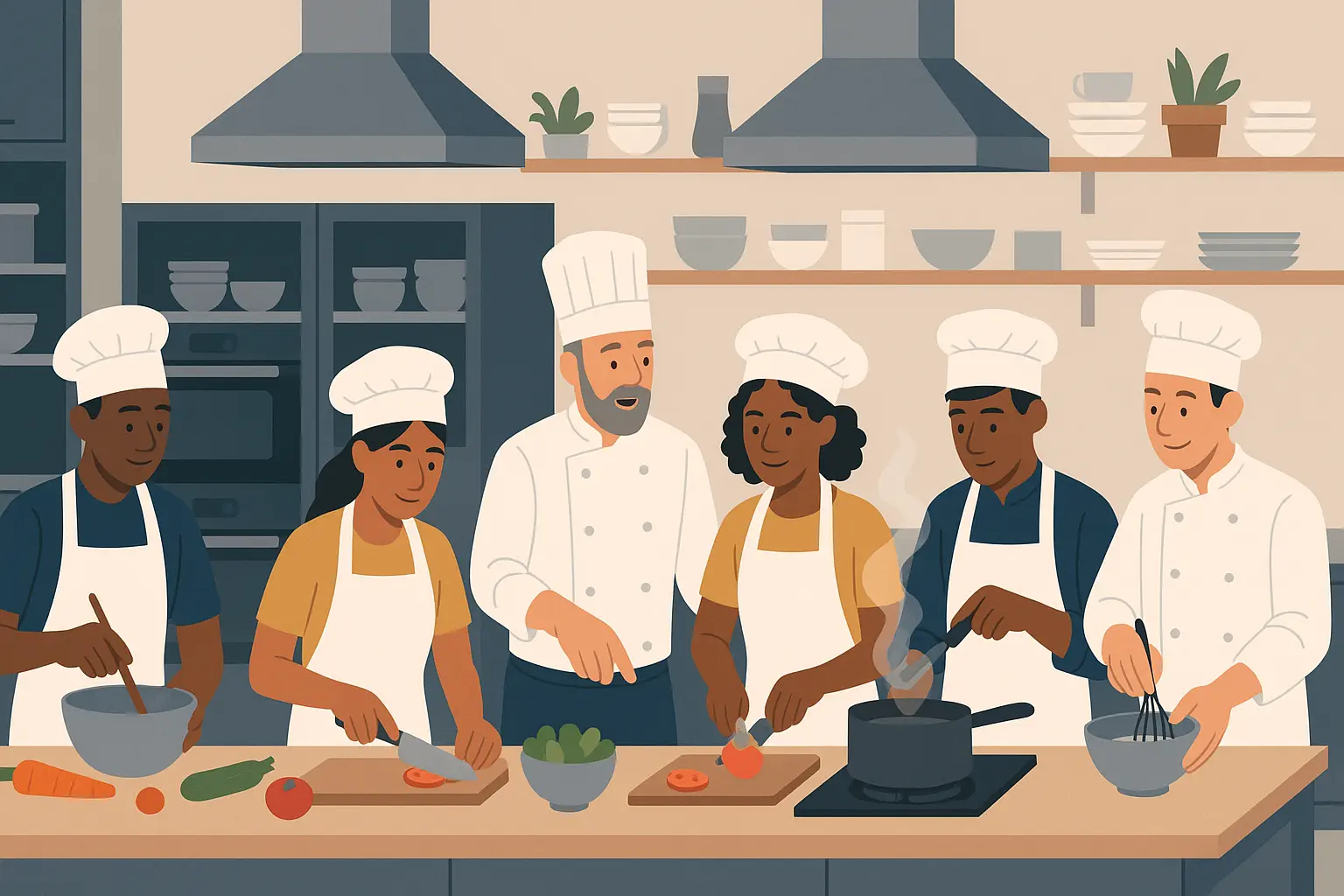
Breaking Free from the Seat-Time Trap
Finally! Some schools are waking up to the fact that if you already know how to brunoise an onion in your sleep, maybe you don’t need to sit through “Knife Skills 101” for the millionth time. Modern culinary programs are slowly moving away from forcing everyone through identical cookie-cutter classes. I’ve worked with schools that actually care about what you can do in a real kitchen rather than how many hours you warmed a classroom seat.
For students trying to figure out if this whole education thing is worth it, understanding is it worth it to get a college degree becomes super relevant when you’re comparing culinary school costs against what you might actually earn and other ways to prove you know your stuff.
|
Program Type |
Traditional Timeline |
Accelerated Timeline |
Key Features |
|---|---|---|---|
|
Certificate Programs |
6 months – 2 years |
3-8 months |
Short, intensive, skill-focused |
|
Diploma Programs |
8-18 months |
6-12 months |
Professional training, externships |
|
Associate Degree |
2 years |
12-18 months |
Comprehensive education, transferable credits |
|
Bachelor’s Degree |
4 years |
2.5-3 years |
Management focus, extensive general education |
Turning Your Kitchen Battle Scars into College Credits
If you’ve been getting your ass kicked in kitchens for years, you shouldn’t have to start from scratch when you finally decide to get that piece of paper. I’ve helped students navigate prior learning programs that let you convert your real-world pain into actual academic credits. You’ll need to document your skills, get your old bosses to vouch for you, and sometimes prove you know what you’re doing through practical tests. But it can potentially cut 6-12 months off your program.
Take Maria – she’d been working the line for five years before enrolling in culinary school. Through her school’s prior learning program, she documented everything: her knife skills, sauce game, food safety knowledge. She submitted work portfolios, did some practical demos, and boom – 15 credits toward her associate degree. Cut her program from 24 months to 16 months and saved over $8,000. Not bad for paperwork.
The Module System That Actually Makes Sense
Some culinary schools have ditched the traditional semester BS in favor of intensive modules that let you knock out coursework in concentrated bursts. These programs often include summer intensives and winter break modules, so motivated students can finish associate degrees in 12-15 months instead of the standard 18-24 months by working through what used to be “vacation” time.
When you’re researching how long is culinary schools, the modular approach shows you just how much those traditional timelines can vary. Some programs offer year-round intensive scheduling that can cram standard degree requirements into way shorter periods – if you can handle the intensity.
Modular Learning Checklist:
-
☐ Find schools that don’t stick to the old semester system
-
☐ Be honest about whether you can handle intensive periods
-
☐ Do the math on time savings vs. how brutal it’ll be
-
☐ Figure out where you’ll live during intensive modules
-
☐ Make sure you have people who can help when things get crazy
-
☐ Check if financial aid works with non-traditional scheduling
Why Your Kitchen Experience Changes Everything
Your background in professional kitchens isn’t just helpful – it’s a complete game-changer that can flip your educational timeline upside down. Schools are finally starting to recognize that industry certs, documented work experience, and actually knowing what you’re doing should count for something. The trick is knowing how to package your experience so schools can’t ignore it.
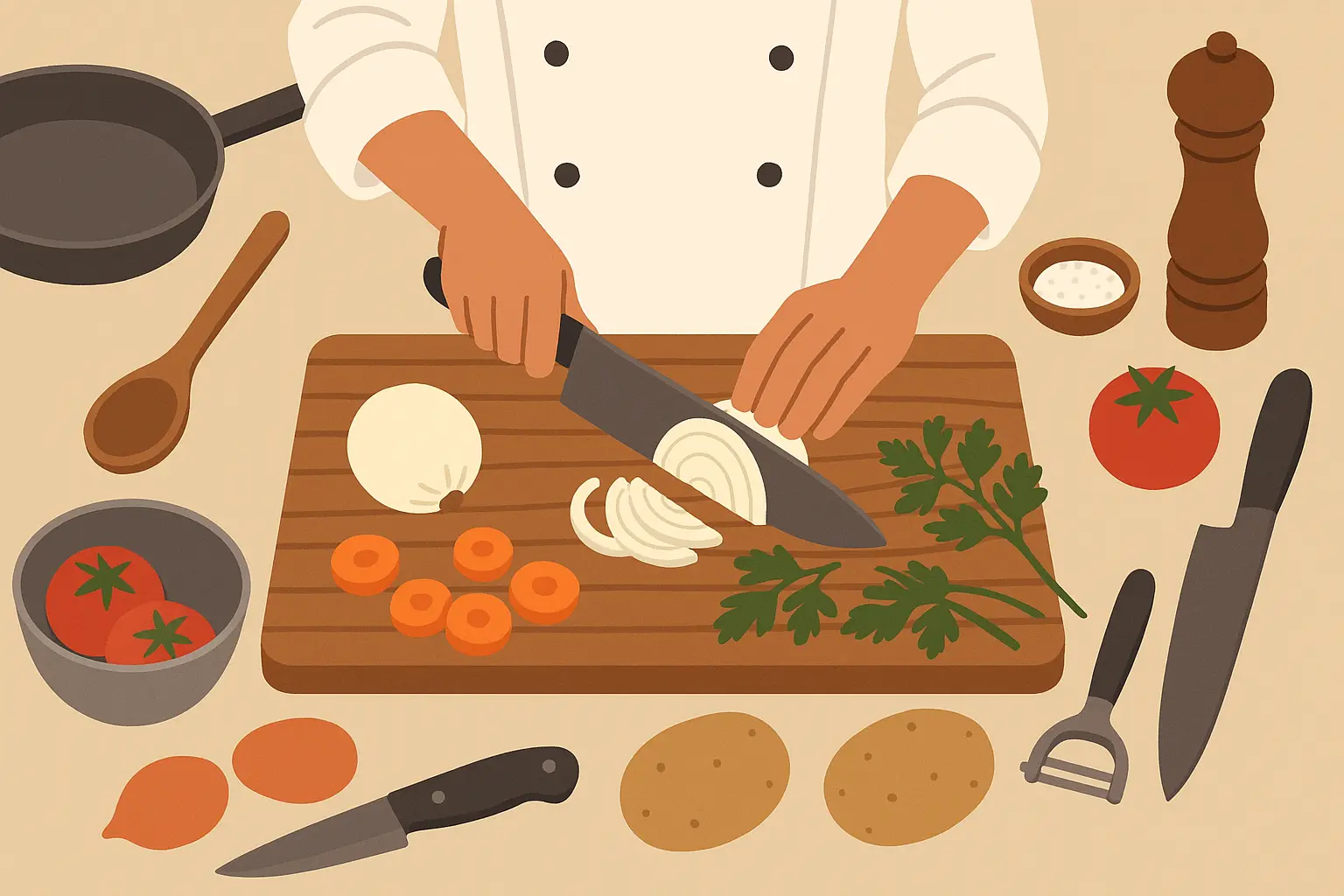
Making Your ServSafe Certification Work Harder
Industry certifications like ServSafe, HACCP, and specialty technique creds can translate directly into course credits when you know how to work the system. Most students have no clue that these certifications can potentially cut an entire semester off their program. But you need to understand the process and work with academic advisors who actually know what they’re doing.
The trend toward recognizing real-world skills is picking up steam as “Gen Z and young millennial men and women without degrees are turning to traditional jobs like chefs” according to Fortune magazine. Professional chefs can earn up to $173,000 a year without a college degree, which proves that industry experience and certifications are becoming way more valuable than some overpriced diploma.
The Portfolio Challenge Nobody Warns You About
Here’s the catch: professional kitchens are terrible at providing the formal documentation you need to prove your skills for academic credit. Most places don’t keep detailed records of what you learned or how good you got. You’ll need to create detailed work portfolios, hunt down supervisor testimonials, and potentially do practical skill demonstrations. It’s a pain in the ass, but worth it when it can turn years of experience into months of saved school time.
Just like other professional fields, culinary students need to understand chef qualifications and how to properly document their skills and experience so schools can’t pretend they don’t count.
Take James – he worked in three different restaurants over four years but had basically no documentation of his skills. To build his portfolio for prior learning assessment, he created a detailed work log, photographed signature dishes he’d made, got written testimonials from two former head chefs, and compiled his ServSafe and allergen training certificates. This documentation package earned him 18 credits – equivalent to one full semester of culinary school.
The Network-Building Phase That Extends Your Journey
Nobody warns you that graduation is just the starting line. The most successful culinary grads figure out that the relationship-building part of culinary education – mentorships, stages, and industry connections – keeps going for years after you get that diploma. And honestly? This stuff is often way more valuable than whatever you learned in class.
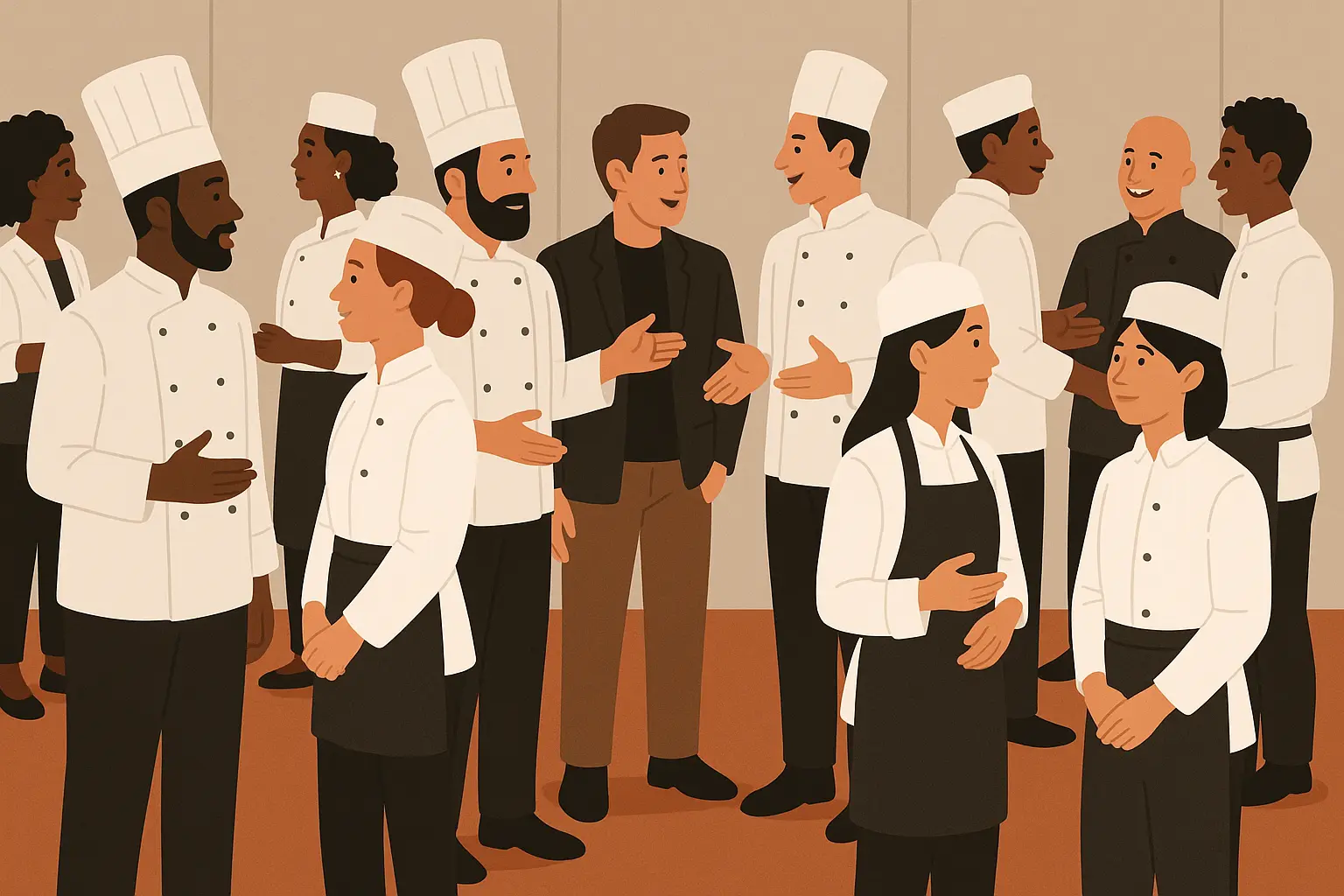
Stages That Change Your Career Trajectory
Oh, you thought school was expensive? Wait until you hear about stages – those magical unpaid positions where you work 60-hour weeks for “experience.” Traditional culinary programs include 3-6 month externships, but many students extend these or pursue additional stages that can add 6-18 months to their educational journey. Your bank account will hate you, but the real-world experience and connections are often priceless.
At Auguste Escoffier School of Culinary Arts, students can complete diploma or associate degree programs in just 60 weeks, which includes one or two six-week industry externships where students gain hands-on experience in commercial kitchens. This timeline provides prime opportunities for rising chefs to network with industry leaders who might provide mentorship or future job opportunities, directly impacting how long does it take to become a chef in terms of both formal education and actually being ready for the real world.
The International Kitchen Experience
The international kitchen thing sounds romantic until you’re living in a closet-sized room in Paris, making €2 an hour, and crying into your bowl of instant noodles. Working in renowned kitchens abroad can extend your educational timeline by 1-2 years, but provides cultural culinary exposure that’s impossible to get in any classroom. Countries like France, Italy, and Japan offer unique learning experiences that many consider essential, though the time investment is brutal. But the skills you’ll learn? Priceless. Literally – because you won’t have any money.
Master-Chef Relationships That Last Decades
Master-chef relationships are great, but let’s be real – some of these “mentors” are just ego-driven tyrants who’ll work you to death. Learn to tell the difference between tough love and straight-up abuse. The good ones will keep teaching you long after formal programs end, and these relationships can influence your career for decades. It’s basically making your culinary education a lifelong process.
Mentorship Development Timeline:
-
Months 1-3: Figuring out if they’re actually worth learning from
-
Months 4-12: Getting your skills torn apart and rebuilt properly
-
Year 2: Advanced technique work and maybe some leadership opportunities
-
Years 3-5: Career guidance and help navigating industry BS
-
5+ Years: Ongoing professional relationship and potential collaboration
Alternative Routes That Skip Traditional School Entirely
Plot twist: you can learn more from a $200 online course than some $50,000 programs. Just don’t tell the culinary schools I said that. Many successful chefs completely bypass traditional degree programs, instead creating documentation systems that prove their culinary journey through alternative means. This DIY approach typically requires 2-5 years of focused effort but can lead to professional recognition without the debt and time commitment of formal education.
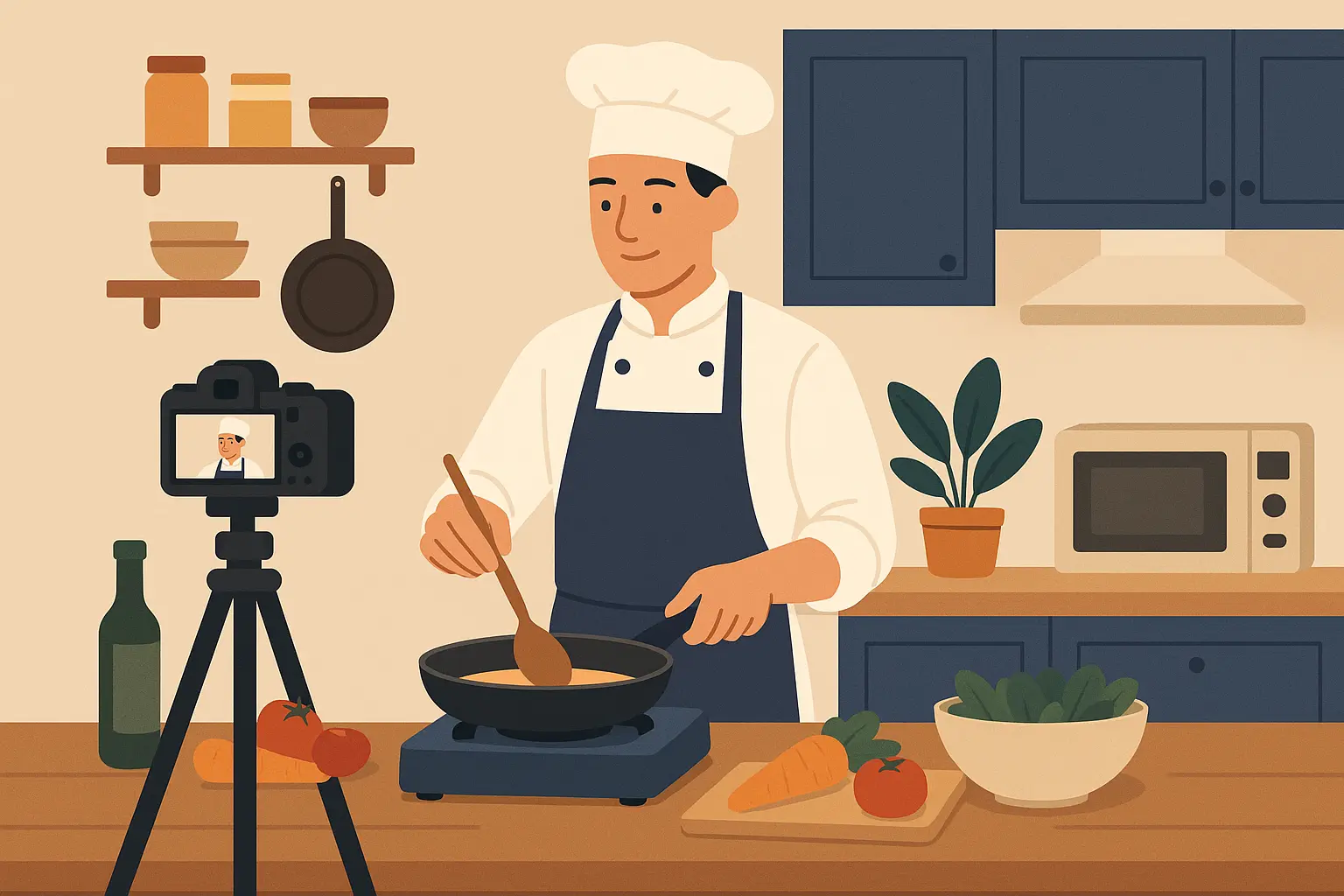
Building Your Digital Culinary Reputation
Welcome to 2024, where your Instagram game might matter more than your knife skills. Sounds stupid? Tell that to the chef who just got a book deal because their sourdough videos went viral. Modern culinary professionals increasingly rely on digital portfolios, social media presence, and online course certifications to prove they know their stuff. Content creation through cooking videos, recipe blogs, and social media followings has become a legit way to build culinary credentials, with some chefs achieving professional recognition through digital platforms instead of traditional education.
This alternative path is perfectly shown by professionals like Rebecca Reed, who switched from a sociology degree to professional pastry work. According to Whalebone Magazine, Reed discovered “the best way she was able to accomplish [helping people] was through her love of baking”, proving how passion and skill development can create successful culinary careers outside traditional educational pathways.
Online Certifications That Actually Matter
Platforms like Rouxbe, MasterClass, and specialized culinary certification programs offer industry-recognized credentials that can supplement or sometimes completely replace traditional degree requirements. These programs typically require 6-18 months of focused study and often cost way less than traditional culinary school while letting you study whenever the hell you want.
For professionals going the alternative route, understanding is a certificate a degree helps clarify the differences between various educational credentials and how much the culinary industry actually cares about them.
According to the Institute of Culinary Education, diploma programs can be completed in as little as 8 months, while degree programs take just over a year. ICE notes that students have access to renowned instructors in hands-on learning environments, and this accelerated timeline shows how focused, intensive programs can provide comprehensive training way faster than traditional academic schedules.
|
Alternative Credential |
Time Investment |
Cost Range |
Industry Recognition |
|
|---|---|---|---|---|
|
Online Certifications |
3-12 months |
$500-$3 |
$500-$3,000 |
Moderate to High |
|
Competition Portfolio |
2-3 years |
$2,000-$10,000 |
High |
|
|
Digital Content Creation |
1-3 years |
$1,000-$5,000 |
Variable |
|
|
Specialized Workshops |
6-18 months |
$3,000-$12,000 |
High |
|
|
Mentorship Programs |
1-2 years |
Varies |
Very High |
The Competition Circuit Strategy
The competition circuit isn’t just about showing off your knife skills (though let’s be real, that part’s pretty fun). It’s about proving you can handle the pressure when Gordon Ramsay’s evil twin is breathing down your neck. Participation and success in culinary competitions provides verifiable proof of skill levels and professional recognition that some employers value more than traditional degrees. Building a competition portfolio requires strategic planning, typically spanning 2-3 years of consistent participation in local, regional, and national events to establish credible professional standing.
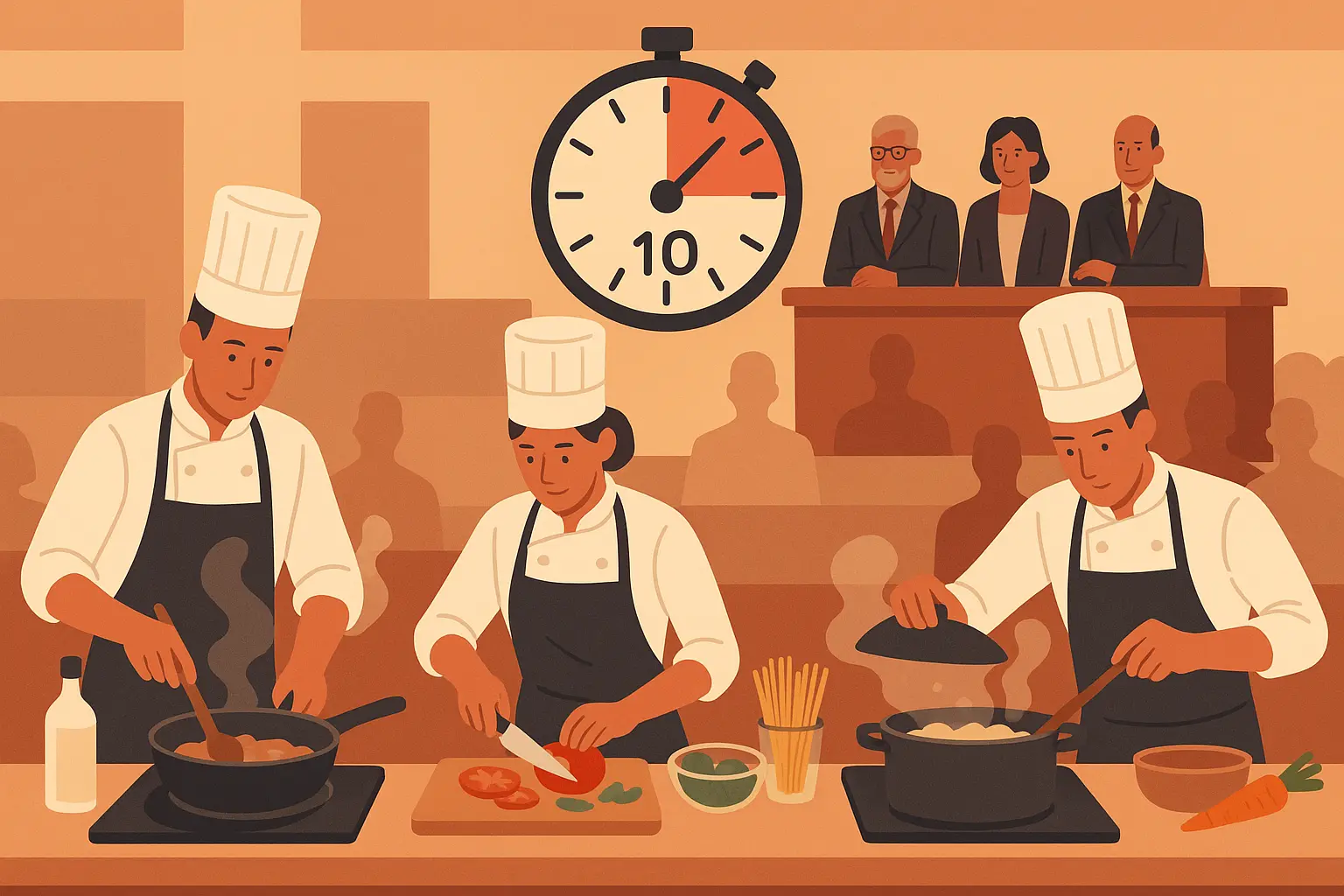
Specialized Certifications in High-Demand Areas
Instead of pursuing broad culinary degrees that teach you a little bit of everything, many professionals focus on specialized certifications in areas like pastry arts, wine service, or specific cuisine types. These programs often take 3-9 months to complete while building marketable expertise in emerging niches like plant-based cuisine, fermentation, or molecular gastronomy. Way more focused, way less time, often way better results.
When Life Gets in the Way: The Financial Timeline Reality
Let’s talk money, because nobody else will. The financial aspect of culinary education creates hidden timeline pressures that most people don’t see coming. I’ve counseled students who discovered that work-study balance requirements, part-time enrollment necessities, and post-graduation debt realities often extend the actual time to career readiness way beyond published program lengths – sometimes doubling or tripling expected completion times.
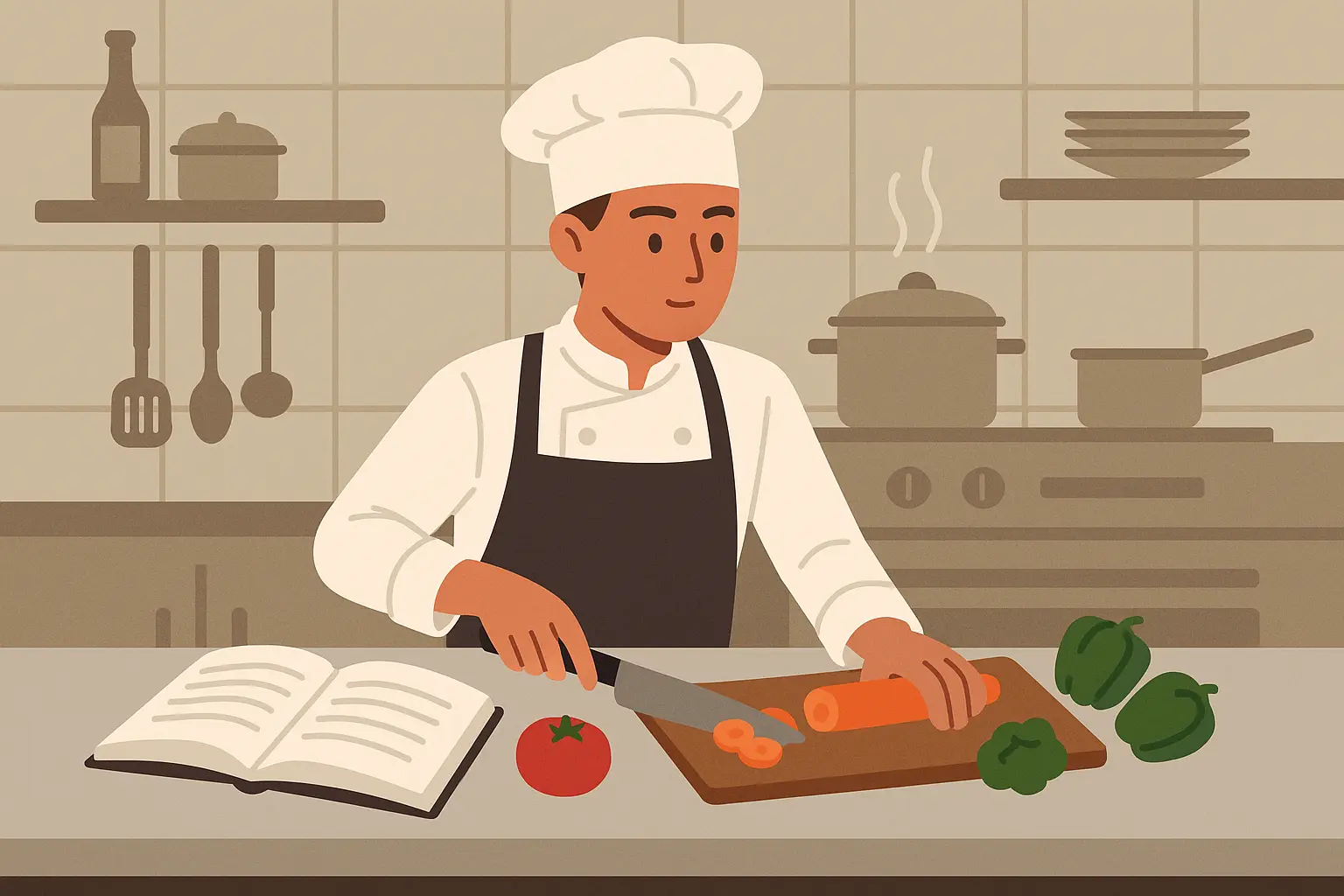
The Part-Time Reality Check
Here’s what they don’t put in the brochure: you’re probably gonna be eating ramen for dinner while learning to make fancy food for rich people. Financial pressures force many culinary students into part-time enrollment, completely screwing up traditional timeline expectations. When you factor in the need to work while studying, reduced course loads, and scheduling conflicts with industry employment, associate degree programs that advertise 18-month completion often take 3+ years to finish.
Students facing extended timelines should research how long does it take to get an associate degree to understand the realistic timeframes for part-time enrollment and financial constraints that actually affect completion rates.
The Chef Apprentice School of the Arts (CASA) reports that culinary certificate or diploma programs often last around 6 months to two years, while associate degree programs typically take around 2 years to complete. However, this timeline assumes full-time enrollment, and most students need way longer due to work obligations and financial reality.
Sarah thought she’d cruise through her 18-month program. Reality check: she was flipping burgers at 6 AM, rushing to afternoon classes covered in grease, then studying until midnight. This forced her into part-time status, extending her program to 32 months. Took her almost three years, but hey – she could cook circles around her classmates by graduation because she was getting real experience while they were just playing with food.
Seasonal Work Complications
The restaurant industry’s seasonal nature screws with student employment opportunities and income stability, sometimes forcing students to pause their education during slow periods or extend their programs to accommodate peak season work commitments. This creates unique challenges in maintaining skill development continuity and can add 12-18 months to completion times. Winter’s dead? Good luck paying rent.
Financial Planning Checklist for Culinary Students:
-
☐ Calculate total program costs including all the equipment they don’t mention
-
☐ Research work-study opportunities and what externships actually pay
-
☐ Figure out seasonal employment patterns in your area
-
☐ Create an emergency fund for when things get slow
-
☐ Hunt down every financial aid and scholarship opportunity
-
☐ Plan for post-graduation debt payments that’ll make you cry
-
☐ Do the math on part-time vs. full-time enrollment costs
Post-Graduation Debt Reality
You’re gonna graduate with debt up to your eyeballs, and guess what? That fancy culinary degree doesn’t magically make you rich overnight. The financial burden of culinary education often forces graduates into immediate employment rather than pursuing additional training opportunities, effectively extending the timeline to achieve desired career positions. Entry-level kitchen salaries might not cover your educational debt while keeping you alive, forcing career timeline adjustments and limiting your ability to move somewhere with better opportunities.
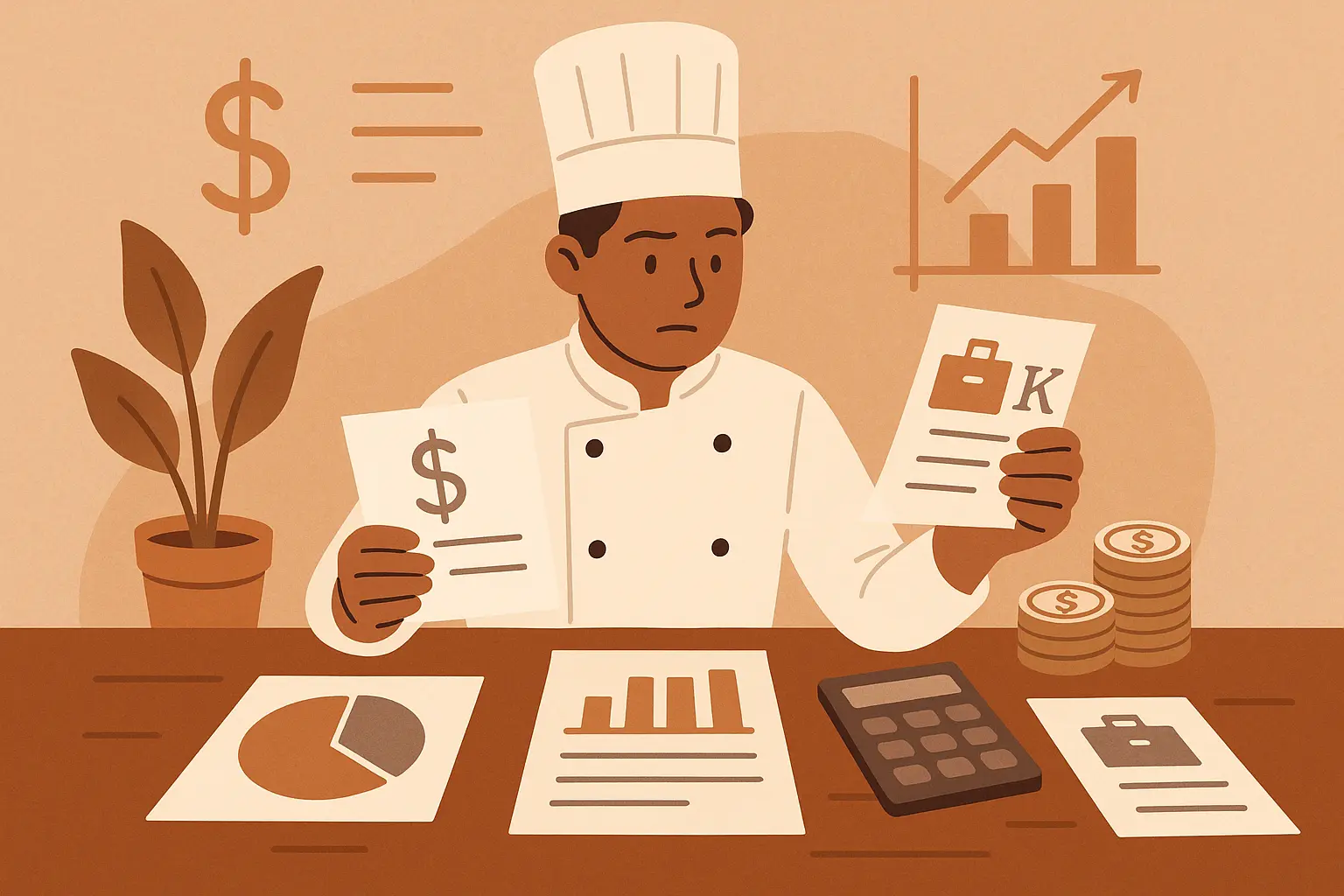
Lost Your Diploma? Here’s What You Need to Know
So your school went belly-up and took your diploma with it? Yeah, that’s a thing that happens more than you’d think. Don’t panic – you’re not screwed, but you’re gonna need to get creative. Culinary professionals often face unique challenges when educational institutions close, merge, or lose records, creating situations where proving educational credentials becomes a nightmare. I’ve helped people navigate these frustrating scenarios where building alternative documentation strategies and keeping proper records of your achievements becomes crucial for career advancement and professional credibility.
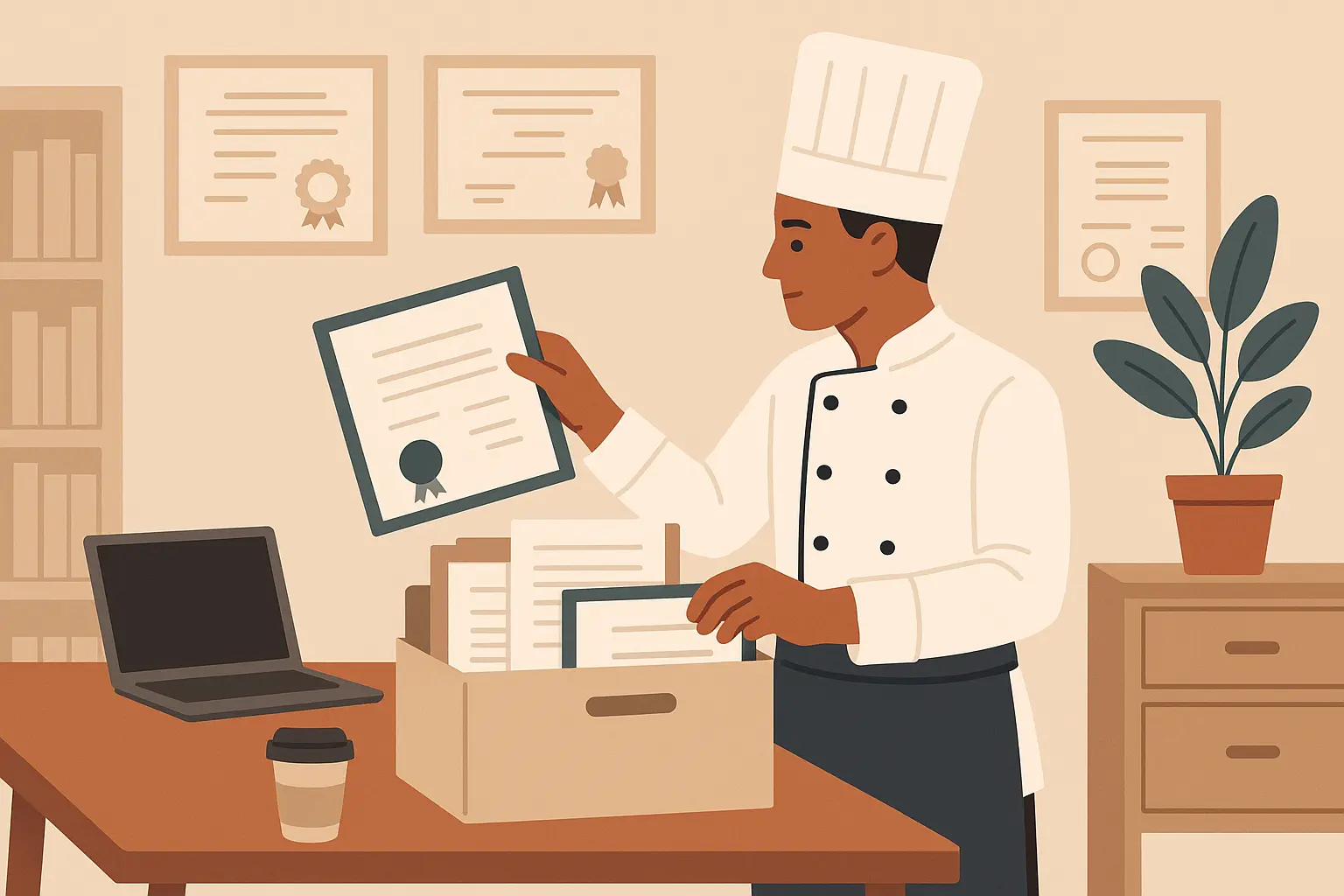
Alternative Documentation When Records Disappear
When traditional transcripts and diplomas become unavailable, culinary professionals must develop alternative documentation strategies that prove their educational achievements. This includes building relationships with former instructors, classmates, and industry professionals who can verify your educational background, as well as maintaining personal records of coursework and achievements. Basically, you become your own filing cabinet.
For culinary professionals dealing with lost credentials, understanding the process of replacing a lost diploma becomes essential, especially when schools close or records get destroyed, requiring alternative verification methods.
For culinary professionals who need replacement documentation of their hard-earned credentials, ValidGrad offers reliable diploma replacement services. Whether you’ve completed a rigorous culinary program years ago and need a replacement diploma for professional display, or you’re documenting alternative learning pathways, ValidGrad’s attention to detail and quick turnaround time ensures your culinary education remains properly documented.
Students from institutions that have closed should also research how to get diploma from closed school to understand their options for obtaining proper documentation when traditional channels are no longer available.
Documentation Recovery Checklist:
-
☐ Keep contact info for every instructor who didn’t completely hate you
-
☐ Stay in touch with former classmates who can vouch for you
-
☐ Hoard copies of all certificates and transcripts like a crazy person
-
☐ Document work experience with detailed job descriptions
-
☐ Keep records of every workshop and continuing education thing you do
-
☐ Create digital backups of everything professional
-
☐ Research what happens when schools close and where records go
Look, start hoarding everything NOW. Screenshots of grades, photos of your diploma, contact info for every instructor who didn’t completely hate you. Trust me, you’ll thank me later when you need proof you actually learned something.
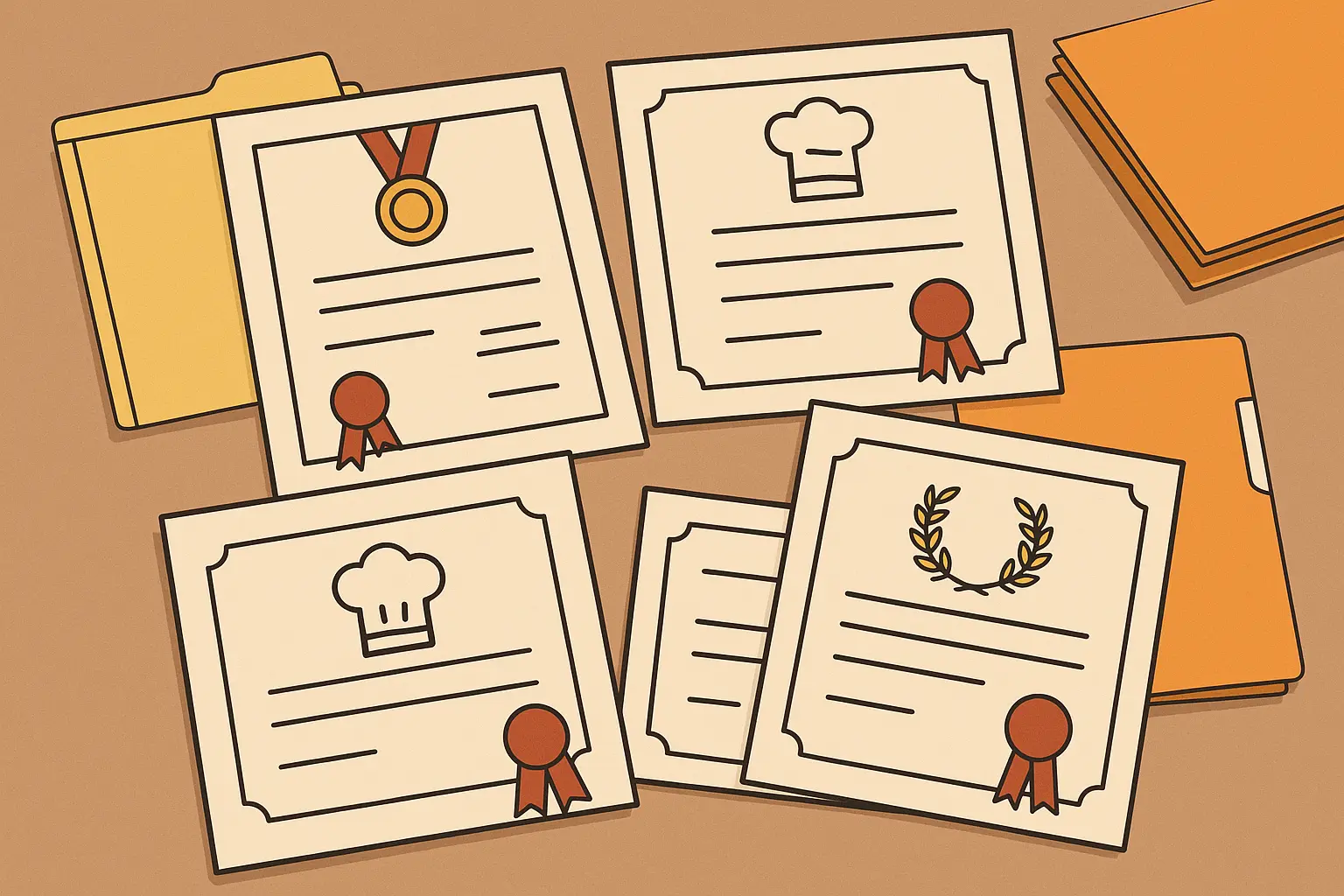
Final Thoughts
Here’s what I really want you to know: this industry will chew you up and spit you out if you let it. The hours suck, the pay starts terrible, and you’ll question your life choices at least once a week. Your timeline for becoming a credentialed chef isn’t gonna be as straightforward as most people think. It’ll depend on your existing experience, financial situation, career goals, and chosen educational pathway. Some of you might fast-track through competency-based programs in 12 months, while others might take a more extended route that includes international stages and specialized certifications spanning several years.
But here’s the thing – if cooking is actually in your blood, none of that other stuff matters. You’ll find your way, whether it takes 18 months or 18 years. Some of the best chefs I know took the weirdest routes to get where they are. There’s no single “right” timeline for culinary education. Whether you’re pursuing traditional degrees, alternative certifications, or building credentials through competition and digital platforms, the key is creating a pathway that aligns with your career goals and life circumstances.
Just promise me you won’t believe the pretty marketing materials, okay? Do your homework, save your money, and prepare for the long haul. And when some culinary school tries to sell you on their “guaranteed job placement” – run. Fast.
Your culinary education is ultimately a lifelong journey that extends way beyond any formal program completion date. I’ve watched chefs continue learning and growing decades into their careers, constantly adapting to new techniques, ingredients, and industry trends. The formal education piece is just the beginning of what will hopefully be a rewarding and delicious career path.
The food world needs good people who actually give a damn about what they’re doing. If that’s you, we’ll figure out the rest as we go.
